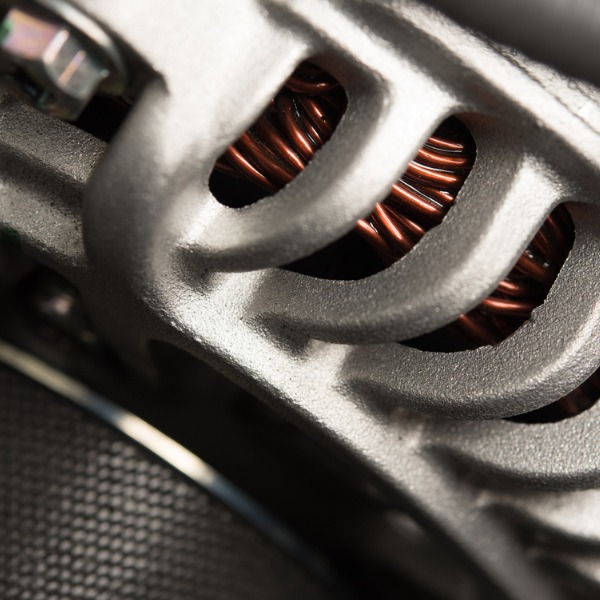When shopping for a new replacement alternator, you might come across the term “1-wire alternator.” So that begs a question: Is a 1-wire alternator the right choice for your vehicle? That depends on several things, but here are a few reasons why people often choose 1-wire alternators.
1) Ease of installation
It’s just common sense that connecting one wire will take less effort than connecting three wires. You just need to route the charge wire to the positive terminal on the battery. Just be sure the gauge of the wire is sufficient. A single wire alternator will require a heftier gauge wire than a standard original equipment 3-wire alternator. For 100-amp alternator, you should use at least a 6-gauge wire, and for a 200-amp alternator at least a 4-gauge wire.
2) Aesthetics under the hood
Especially for classic cars and collectibles, it’s important what’s under the hood looks good. For these cars, many owners prefer 1-wire alternators because they look cleaner and neater in the engine compartment with less wiring. Many owners of hot rods prefer 1-wire alternators because of the cleaner appearance.
3) Swapping out generators for alternators
Older models of vehicles that originally came equipped with a generator are good candidates for upgrades to 1-wire alternators. For instance, it’s common for owners of older tractors to use 1-wire alternators to replace generators.
4) Replacing discontinued models of alternators
If you’re replacing an alternator of an older model of vehicle and no one makes that specific alternator anymore, a 1-wire alternator may work in those situations. As an example, it may be hard to find OEM equivalent alternators for older tractors and older industrial machinery. In many cases, a 1-wire alternator may fit the bill.
5) Installing a multiple alternator set up.
There are times when more than one alternator will be installed for certain applications. In those cases, a 1-wire alternator works well because of the ease of installation and reduced need for wiring.
When not to install a 1-wire alternator
Of course, 1-wire alternators are not the ideal choice for every application. You should not choose a 1-wire alternator for any application that requires the original harness plug to be installed or anything with low RPM running engines.
Choosing a 1-wire alternator
Like any mechanical component, 1-wire alternators have certain pros and cons. But for specific applications, 1-wire alternators excel for ease of installation and low-profile looks. For the right application, they are good choices.
Related Articles
How To Diagnose and Fix Common Car Alternator Problems
12 Steps to Prepping Your Vehicle for an Alternator Replacement
When Good Alternators Seemingly Go Bad


